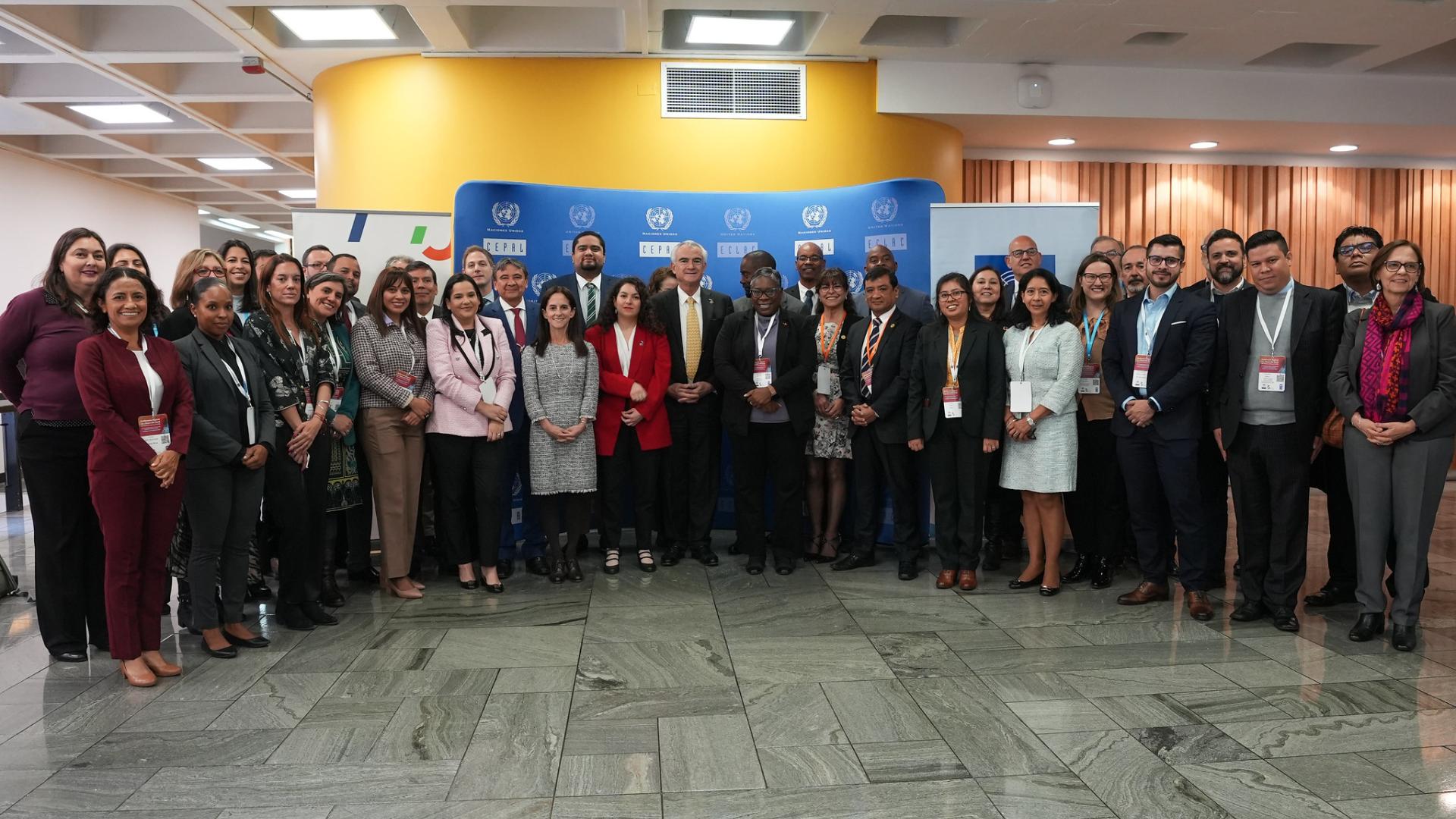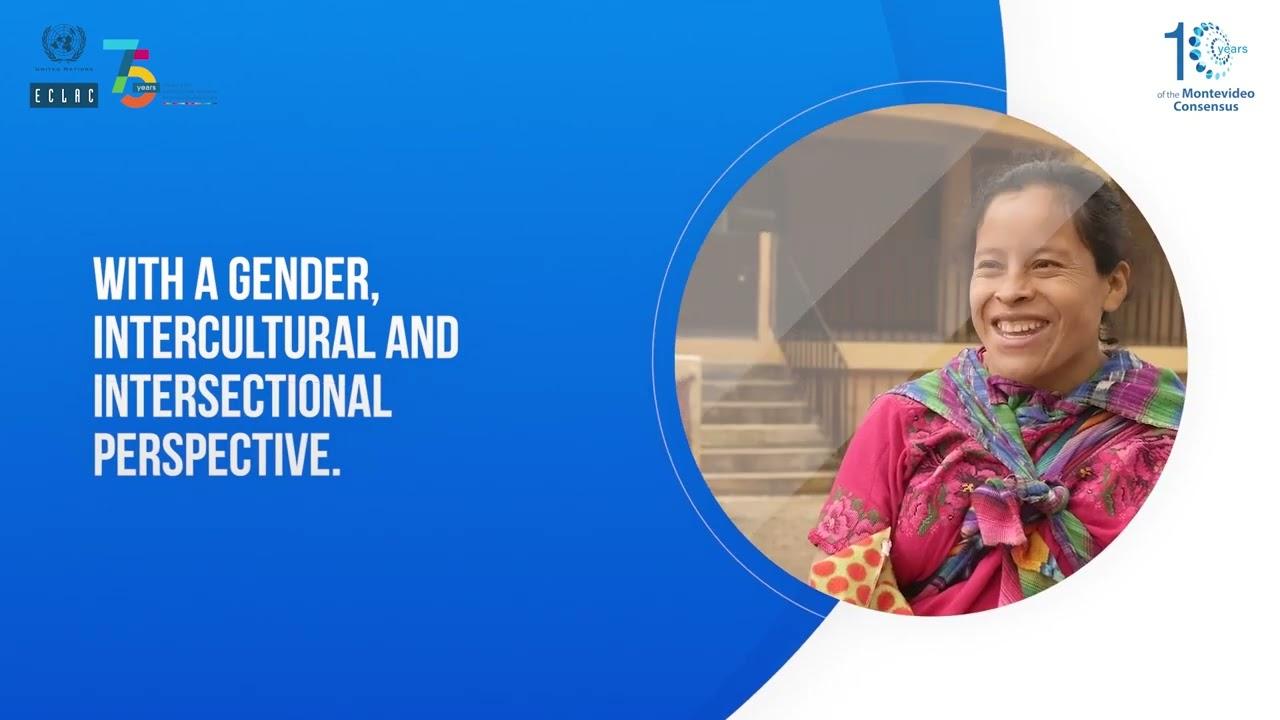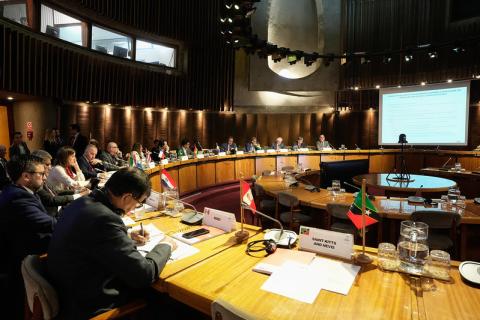7-9 Mar 2022 San José, Costa Rica | Forum of the Countries of Latin America and the Caribbean on Sustainable Development
Innovation, technological development and public-private cooperation are essential for a green, inclusive and sustainable recovery after the COVID-19 pandemic, according to experts gathered today at the SDG Business Forum in Latin America and the Caribbean 2022: Innovation and Public-Private Cooperation for an Inclusive and Sustainable Recovery, who stressed the importance of forging social compacts between governments, civil society and the private sector with a view to implementing the 2030 Agenda in the region.
The event – organized by the Economic Commission for Latin America and the Caribbean (ECLAC), the Government of Costa Rica, the United Nations Global Compact and the International Chamber of Commerce (ICC) – took place on the sidelines of the Fifth Meeting of the Forum of the Countries of Latin America and the Caribbean on Sustainable Development, which is being held through Wednesday, March 9 in San José, Costa Rica.
The Business Forum was inaugurated by Alicia Bárcena, Executive Secretary of ECLAC; Adriana Bolaños Argueta, Deputy Minister for Bilateral Affairs and International Cooperation at the Ministry of Foreign Affairs and Worship of Costa Rica; Sanda Ojiambo, Executive Director of the United Nations Global Compact (by video message); and María Fernanda Garza, First Vice Chair of the ICC.
In her remarks, Alicia Bárcena affirmed that the deceleration of growth along with the structural challenges associated with low productivity, poverty, inequality and low investment – which only amounts to 19.5% of GDP in the region – reinforce the idea that growth must be a priority focus for policy.
However, she noted, “we are not seeking just any type of growth and investment. We need to change the unsustainable paths that reinforce existing consumption patterns.”
ECLAC’s Executive Secretary warned that green investment in Latin America and the Caribbean represented just 1% of all spending announced in 2021, while environmental budgets fell by half as a share of public expenditures between 2019 and 2020, declining from 0.4% to 0.2% of GDP.
She added that in ECLAC’s report entitled A decade of action for a change of era, prepared for the fifth meeting of the Forum on Sustainable Development, the Commission documents the serious implications of these trends for terrestrial and marine biodiversity loss and deforestation.
“In this context of intensified structural challenges, ECLAC’s call for structural change in the development model with equality takes on renewed urgency. Industrial and technological policies play an important role in this process, including the promotion of dynamic driving sectors, such as the health-care manufacturing industry and the digital revolution for sustainability,” Alicia Bárcena stated.
Meanwhile, in her remarks, Minister Adriana Bolaños emphasized that only through solid partnerships and cooperation at all levels and among all actors will we be able to make progress on the targets of the Sustainable Development Goals (SDGs).
“Public-private partnerships should be partnerships for development, they must be taken seriously by our institutions as such. The financing and execution of structural projects, developed with social responsibility, should contribute to inclusive growth, stimulate job opportunities, support the most vulnerable, combat inequality and poverty and, of course, support women,” the minister indicated.
Sanda Ojiambo, Executive Director of the United Nations Global Compact, underscored that collaboration between the public and private sectors has been crucial in the global response to COVID-19.
“If we operate in a sustainable way in line with the Global Goals, we will recover better together, we will create resilience and we will strengthen our capacity to create businesses and build markets,” she declared.
María Fernanda Garza, First Vice Chair of the International Chamber of Commerce, warned that the pandemic has exposed the deep relationship between companies, governments and society.
“The reconstruction must be designed and implemented taking this into account. The role of the private sector can no longer be relegated to that of employer or financier,” she sustained.
In the event’s later debates, specialists addressed the pandemic’s effects and the importance of cooperation among multiple stakeholders, both in terms of the response to the emergency as well as in fostering a sustainable reactivation.



